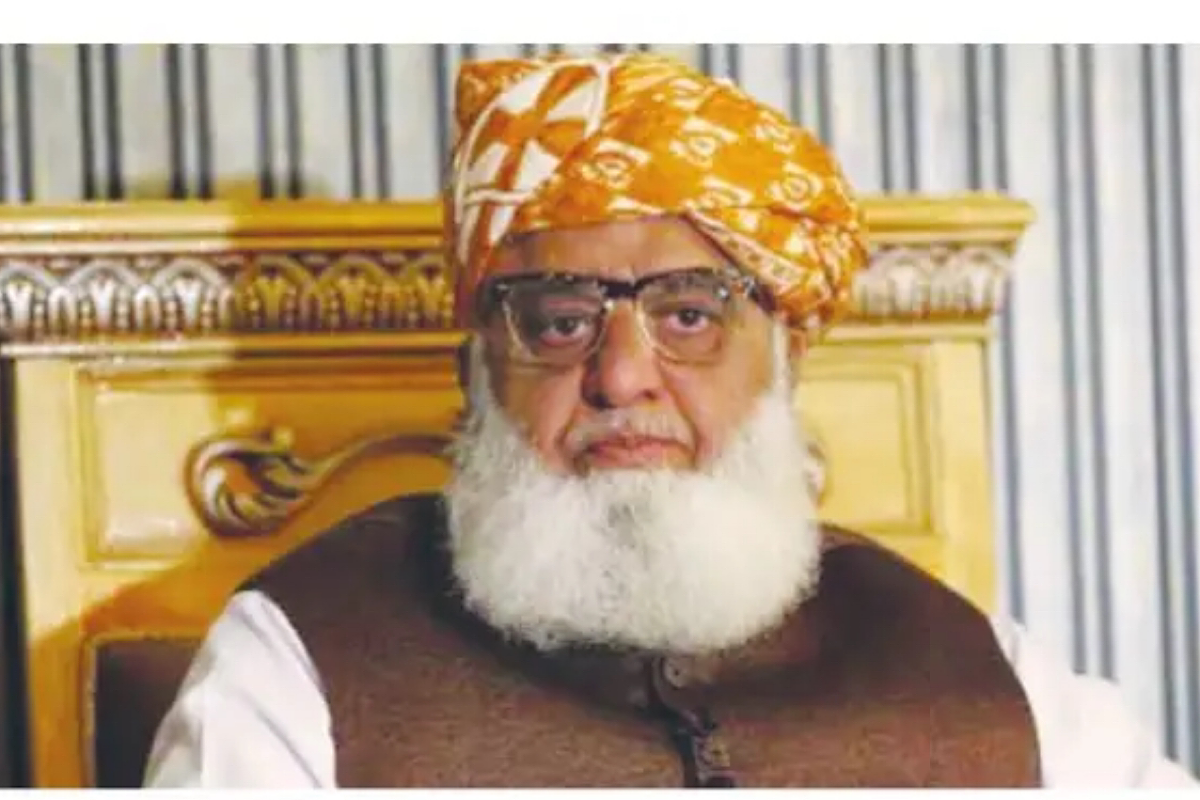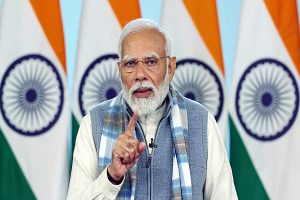Pakistan never ceases to amaze. This was evident in their recently concluded elections. Polling results were delayed by days to select candidates shortlisted by the Rawalpindi clique of generals. Mobile communication services were shut down on security pretexts but in reality, to enable rigging. All efforts at sidelining Imran Khan’s PTI, including incarcerating its leaders, taking away its symbol and breaking the party structure, failed.
While other political parties did some campaigning, Imran’s PTI was prevented by every means. Its online meetings were blocked by internet outages, and public rallies by imposing restrictions on gatherings. Yet, the public voted for PTI-backed independent candidates, forcing the generals to re-consider their strategy and adopt large scale rigging. Mass voting for the PTI was a revolt against the generals. JUI-F leader Maulana Fazlur Rehman claimed that the establishment (Pakistan’s army) ‘broke all records of interference.’ A senior Pakistani politician, Hafiz Naeem ur Rehman, who won provincial elections from a Karachi seat stepped down, claiming it was rigged in his favour, another surprise from Pakistan. Official admittance of vote tampering to reject PTI candidates was made by the Rawalpindi Commissioner, Liaquat Ali Chattha, who resigned on moral grounds and was subsequently arrested.
Amongst those whom he accused of being a part of the process were the Chief Election Commissioner and Chief Justice of Pakistan. Surprisingly, the army was not mentioned. Liaquat Chattha, the whistleblower, was subsequently ‘convinced’ by the all-powerful deep state to reconsider his accusation. He issued a rebuttal, from an ‘unknown location by email’ claiming that no rigging took place and he made the statement based on an offer of a lucrative post by Imran Khan’s PTI. Evidently, this change of heart was forced upon him, though till date, he remains missing. A court case, seeking new elections due to organized vote tampering was dropped by the Pakistan Supreme Court, days after it had been filed, by terming it as a ‘publicity stunt.’
This was because the petitioner, a retired Brigadier, failed to appear for two hearings. The brigadier had mysteriously vanished abroad, ‘on a one-way ticket,’ and sent an email withdrawing his petition. Surprisingly, none of his family members were aware of his departure. Amazing Pakistan. Adding to the amazement is Imran Khan’s decision to approach the IMF demanding they conduct an independent audit of the elections prior to engaging with the new government on additional loans.
The IMF refused to be drawn into the controversy. Apart from reinforcing the fact that elections were rigged, this is an invitation for interference by international bodies. The world is well aware that elections were rigged. The US, Britain and the EU expressed their concerns and demanded an investigation. Knowing Pakistan, nothing will be done. Yet, ironically, Pakistan’s ‘selected’ caretaker PM, Anwaar Kakar, congratulated the nation for the conduct of ‘another peaceful, free and fair election.’ Its President maintained silence. X, formerly Twitter, was blocked in Pakistan for over six days, over fears of spreading of information on rigging leading to protests.
During elections and counting of votes, all mobile network services were suspended, presumably due to security concerns. Interestingly, no authority in the Pakistan government has taken responsibility for restricting X for such a prolonged period. Thus, once again the initiative appears to be of the Pakistani army. The rigging is part of the strategy to bring those the army desires to power.
What followed post the results were even more intriguing. In order to ensure that the generals retain control, no political party was given a majority resulting in the formation of a coalition government, which is almost a repeat of the coalition which toppled Imran in February last year. The frustration was evident in Nawaz Sharif in that he appointed his brother, Shehbaz, as the PM, rather than don the mantle himself. Nawaz Sharif had specifically returned from England to assume the chair of the PM. More interestingly, candidates, who fought as independents, backed by Imran Khan’s PTI, decided to align themselves with a political party which barely managed to scrape through.
They will form the government in Khyber Pakhtunkhwa, which they had earlier. However, in case the party name and symbol are restored and its independent members rejoin, they could pose a threat to the current government. While the amazing and entertaining election process has concluded, can anything change? The new Shehbaz government will have almost the same ingredients as the last, the only change being that the President would be Asif Zardari, who would be their choice. Since the government would be a coalition of rival parties there would be limited flexibility. In its last tenure the Shehbaz government did nothing to improve Pakistan’s economic state and is unlikely to push anything new now. The army controlled the last government and would do the same again.
For IndoPak relations, nothing will alter, unless Asim Munir has a mind-change, which is unlikely. The current priority for the Pakistani deep state and the government would be to push Imran out of the country on self-exile under strict conditions. Keeping him within is a threat which they could well do without. The fact that the junior and middle level army cadre is proImran remains an added concern as it divides the Pakistani army. Even ex-servicemen organizations are largely backing him. His ability to carry the masses, even while incarcerated, was evident in the recently concluded elections.
If free, he could spell disaster. Shehbaz is the PM now, but for how long remains debatable. After all, no Pakistani PM has completed his full tenure, each one hoping to be the first. Each has been removed by the army chief he himself has appointed, Gen Asim Munir having been appointed by Shehbaz. Bilawal, though vying for the PM’s chair would sit and watch from the sidelines waiting and hoping for the mantle to be handed over to him.
Zardari, as President for the second time, has proved to be a survivor in the hurly burly of Pakistani politics, choosing a safe and untouchable appointment as he moves towards retirement. Gen Asim Munir and his generals would celebrate as they managed to get the government of their choice, though with hiccups. The Pakistan army has maintained its record of managing every election.
(The writer is a retired Major-General of the Indian Army.)












